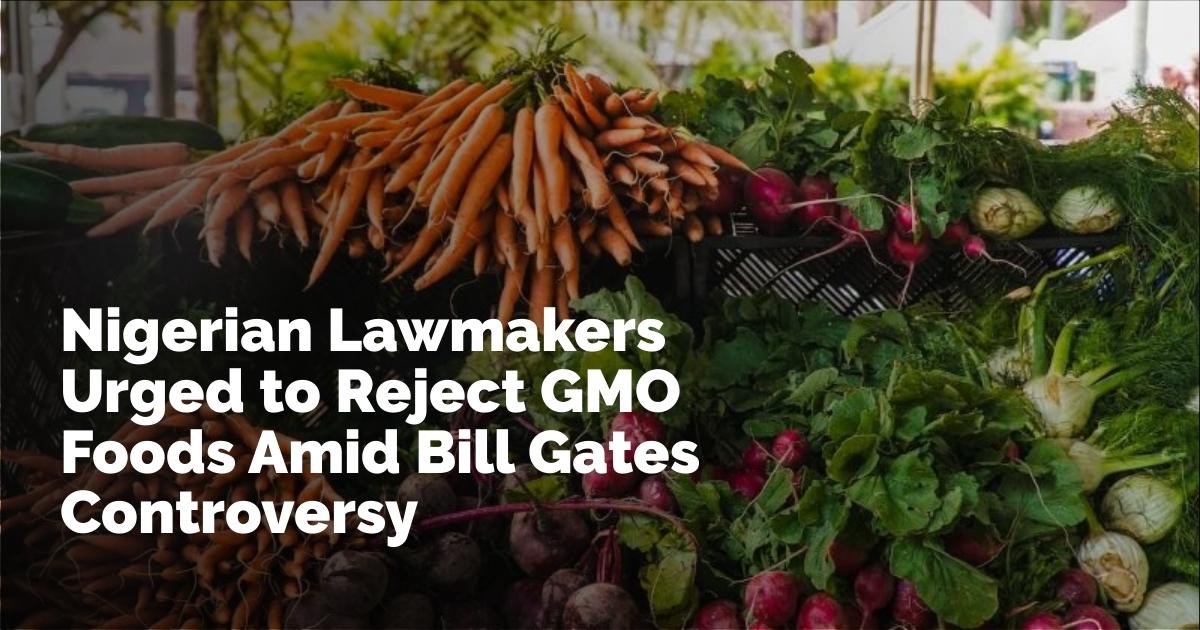Bill Gates and the GMO Controversy in Nigeria
The debate surrounding Genetically Modified Organisms (GMO) foods has intensified in Nigeria, and at its heart is a call to action led by Michael Nwabufo, a prominent brand manager and Corporate Affairs Commission ambassador known as Mike Premium. Nwabufo's appeal to the Nigerian National Assembly emphasizes the critical need to address the looming risks associated with GMO foods, which are being promoted by influential figures like Bill Gates.
Understanding GMOs and the Concerns
Genetically Modified Organisms involve altering the genetic makeup of crops to enhance their resistance to pests, increase yield, or achieve other benefits. Proponents argue that GMOs offer a solution to food scarcity. However, critics, including Nwabufo, point out several potential risks such as health concerns, environmental impact, and economic dependency on foreign seeds.
During a meeting with the House of Representatives, Nwabufo highlighted his distrust of GMOs, urging lawmakers to prioritize the welfare of Nigerian citizens. He underscored the need for Nigeria to safeguard its sovereignty against influences that could compromise the nation’s health and environmental integrity.
The Role of Bill Gates
Bill Gates, the co-founder of Microsoft and renowned philanthropist, has been a key figure in promoting GMOs in agriculture worldwide. His foundation has invested significantly in agricultural advancements intending to address global hunger. However, Nwabufo questions Gates' motives, suggesting an underlying agenda geared towards controlling Nigeria’s agriculture and health sectors.
Nwabufo cited the example of 'tella maize,' a genetically engineered crop banned in several countries due to health concerns. He warns that reliance on GMOs could result in Nigeria's agricultural independence being compromised, turning the nation into a perpetual customer for lab-engineered seeds.
Health and Environmental Implications
Critics like Nwabufo argue that GMOs pose unverified risks to human health, such as reduced lifespan and increased disease susceptibility. There are also fears that GMOs can disrupt ecosystems, harm biodiversity, and threaten traditional farming practices that have sustained communities for generations.
Nwabufo advocates for rigorous scientific research to evaluate the safety of GMOs, ensuring any approved use does not jeopardize public health or environmental sustainability. He calls for transparency in healthcare innovations and a focus on developing local solutions that preserve Nigeria’s rich biodiversity and heritage.
Global Context and Actions
The GMO debate is not isolated to Nigeria; it has been prevalent in various countries where concerns have led to restrictions or outright bans. Nwabufo references incidents in countries such as India and parts of the U.S., where negative effects on both humans and the environment have been reported.
The call is not to reject modern scientific advancements entirely but to ensure that they are integrated with due diligence, alongside traditional methods that have proven effective over centuries.
Nigerian Policy and Decision-Making
Nwabufo appeals to key governmental figures like the Minister of Agriculture and Food Security, Sen. Abubakar Kyari, urging them to reconsider their stance on GMOs. He emphasizes the importance of democratic involvement in decisions that impact the nation’s future, advocating for comprehensive evaluation and public consultation before policies are made.
The emphasis is on empowering Nigerian farmers and institutions to contribute to the global food supply chain without becoming dependent on external entities. This calls for a balanced approach that embraces technology while preserving indigenous practices.
A Call for Sovereignty and Independence
In essence, Nwabufo’s message is about protecting Nigeria's right to self-determination in its agricultural choices. It is a call for the nation to remain vigilant against corporate and foreign interests that could overshadow domestic priorities. By fostering local agricultural innovations and maintaining biodiversity, Nigeria can secure its pathway to a sustainable future.
The GMO debate in Nigeria underscores larger global discussions on the ethics and implications of genetic modification in food production. As the conversation continues, Nwabufo’s campaign symbolizes the urgency of evaluating the true cost of technological advances and the importance of maintaining a clear-sighted view of national interests in the face of global pressures.
출처 : Original Source

